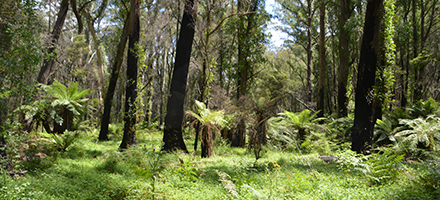Timber harvesting is resuming on the South Coast of New South Wales and Eden. Daniel Tuan, General Manager Hardwood Forests, said the Forestry Corporation had been working constructively with the Environment Protection Authority for the past 15 months to negotiate site-specific operating conditions for each harvesting operation in bushfire affected coastal forests on a case-by-case basis. Source: Timberbiz
But progress had been too slow to avert the imminent closure of the timber industry on the South Coast and Eden and the loss of jobs in local communities which will occur if timber harvesting does not recommence.
In a statement, the EPA said it had been working to negotiate site-specific conditions for logging based on the impact of the fires.
It also said it was trying to implement a long-term approach to manage the risks posed by timber harvesting in the post-fire landscapes of coastal NSW.
AFPA CEO Mr Ross Hampton said there were hundreds of forestry-dependent jobs at stake on the South Coast if supply to timber mills did not resume, and thousands more hardwood timber jobs across the state on the line.
“Forestry Corporation of NSW has done the right thing and taken on board the EPA advice to develop additional environmental safeguards that strike a balance on the environment and the need to resume supply to industry,” Mr Hampton said.
“Almost 15 months since the fires, we have seen the resilience of our native forests with abundant regrowth. It is time to focus on providing certainty for the timber industry that is a major employer on the South Coast and avoid an imminent crisis if these mills close.”
Mr Hampton said that already there were mills that have run out of logs to process and are on the verge of laying off workers and closing.
He said others would follow if FCNSW did not take this course of action.
“We believe the additional environmental safeguards we have proposed provide the right balance which Forestry Corporation is required to strike between environmental considerations; the need to support the regional communities reliant on timber industry jobs; and meet its supply commitments with small family businesses and key local mills,” Mr Tuan said.
In the coming weeks Forestry Corporation will recommence renewable timber harvesting to meet the conditions of the Government’s ruleset for native forest harvesting, the Coastal Integrated Forestry Operations Approval (CIFOA) which binds Forestry Corporation and the EPA and already prescribes protections for wildlife, soil and water and enables sustainable timber to be produced and the trees regrown.
“To this ruleset we will add additional environmental safeguards in recognition of the impacts of the 2019-2020 bushfires. Operations will be on a temporary basis until the results of the wide-ranging review by the National Resources Commission, due later in 2021 with which Forestry Corporation continues to co-operate,” Mr Tuan said.
The additional environmental safeguards include:
- Greater numbers of habitat trees retained in each operation
- Large areas excluded from harvesting at both the Local Landscape Area and Operational Area levels
- Additional ecology surveys
- Additional buffers on all riverbank and environmental protection zones which are already excluded from harvesting.
‘’We will put in place robust operating procedures to manage compliance with the additional safeguards and share the outcomes,” Mr Tuan said.
Australian native forests naturally regrow after fires and that regeneration is well underway in many areas.
“The hardwood timber industry is a major contributor to employment and economic activity on the South Coast and Eden. We believe this temporary solution strikes the right balance between supporting regional jobs and communities with ecologically sustainable forest management,” Mr Tuan said.
Mr Hampton urged the EPA to allow the experienced forest scientists and ecologists at FCNSW to get on with the job of sustainably managing the state’s multi-use forests.
“The science shows that it is not an ’either-or’ proposition – native forests managed sustainably for timber production and recreation deliver the same or better environmental outcomes as NSW’s millions of hectares of National Parks and reserves.”
Mr Hampton said the real environmental catastrophe would be if Australia’s sustainable native timber industry closed and we relied solely on imported hardwood timber.
“Our native timber harvesting operations are among the most sustainable, strictly regulated in the world, with only 0.2% of NSW native forests harvested annually for timber production, and they are all regenerated by law,” Mr Hampton said.
“Closing Australia’s sustainably managed native timber industry won’t stop the demand for quality appearance-grade hardwood for floorboards, staircases and furniture. It will just increase imports from countries with weaker environmental safeguards at high risk of illegal logging and deforestation,” Mr Hampton said.








